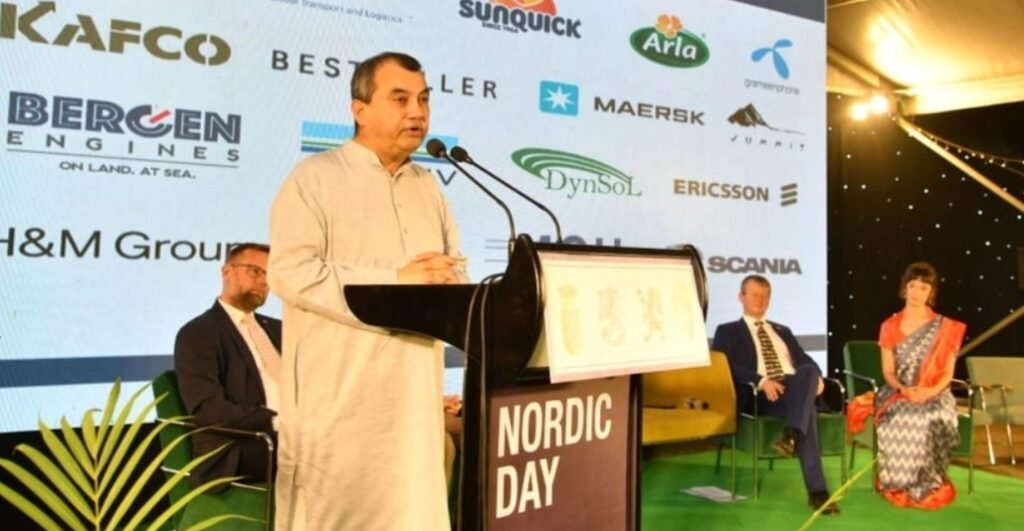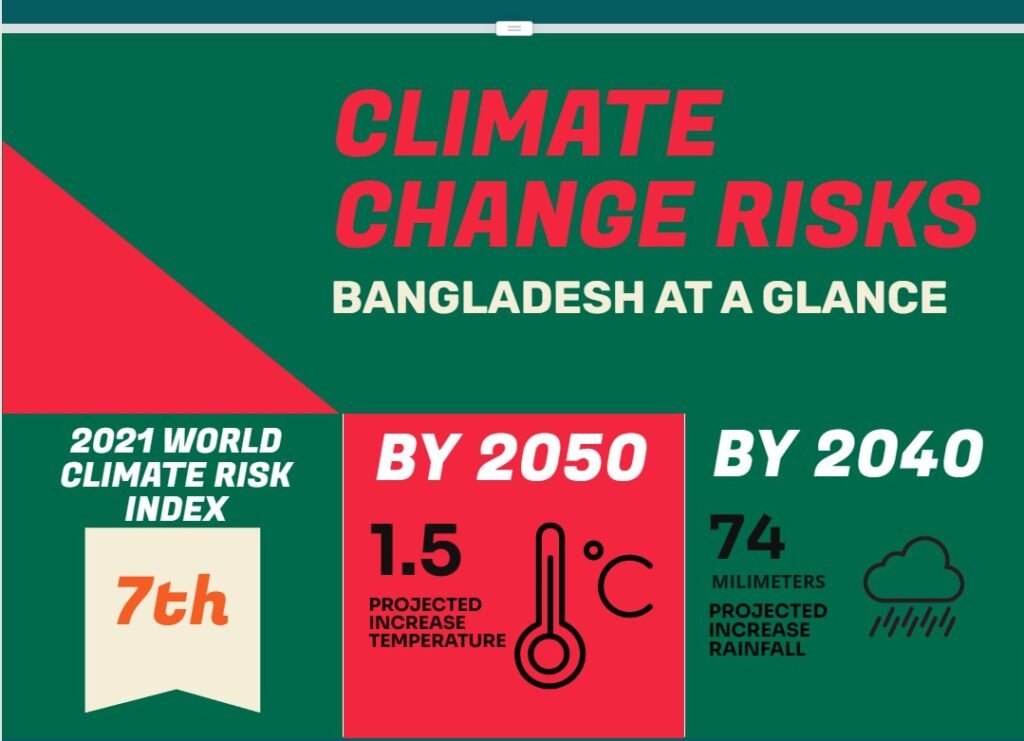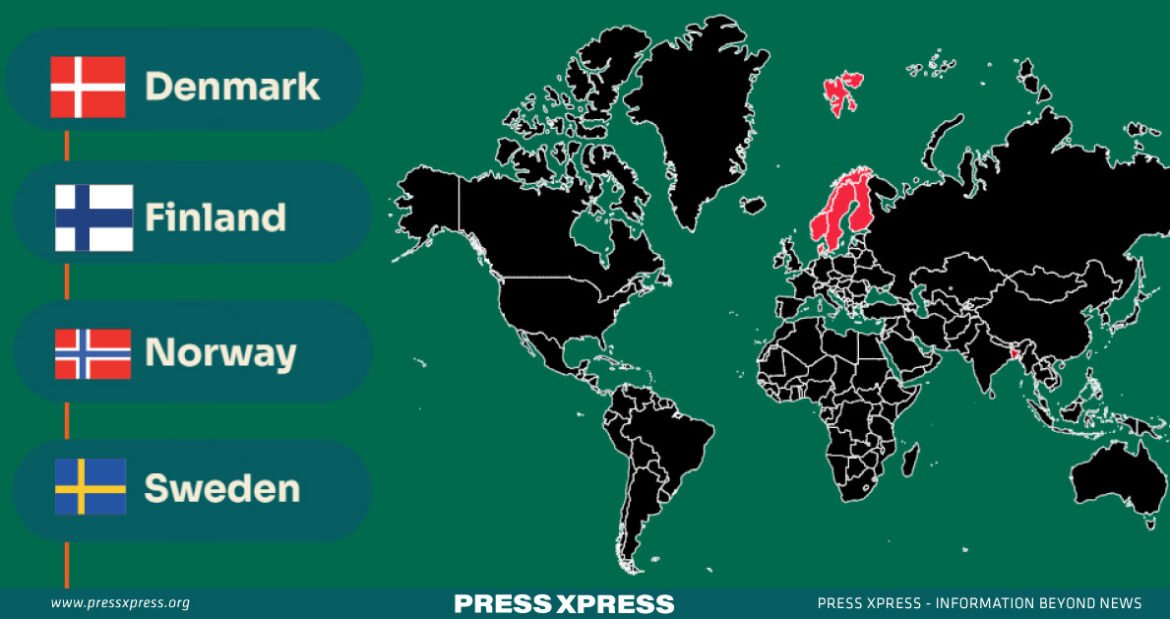On March 7th, 2024, Environment, Forest, and Climate Change Minister Saber Hossain Chowdhury announced that Bangladesh and Nordic countries pledged to join hands to enhance collaboration for a greener and more resilient future. In his address as the chief guest at the Nordic Day commemoration event held at Hotel Radisson in Dhaka, Chowdhury commended the Nordic countries for their commendable dedication to environmental protection. He emphasized that Bangladesh, too, is actively striving towards a sustainable future. The event highlighted the vibrant culture and cooperative relationships shared among Denmark, Finland, Norway, and Sweden.
You Can Also Read: PLASTIC INDUSTRY’S DECADES-LONG RECYCLING LIES EXPOSED, CENTER FOR CLIMATE INTEGRITY REPORT
The Nordic countries are known for their exemplary commitment to environmental stewardship, social justice, and human rights. They have been at the forefront of global efforts to combat climate change and promote sustainable development. The Nordic Council, the intergovernmental body of the Nordic countries, has a vision to make the region the most sustainable and integrated system in the world by 2030.

Bangladesh’s Risk Due to Climate Change
Bangladesh is one of the most vulnerable countries to climate change, ranking seventh on the 2021 World Climate Risk Index. The low-lying nation faces multiple climate-induced hazards, such as tropical cyclones, storm surges, floods, droughts, sea-level rise, salinity intrusion, and ocean acidification. These threats pose serious challenges to the country’s development, poverty reduction, food security, and environmental stability.

Climate change is expected to have severe impacts on Bangladesh’s natural resources, livelihoods, health, and infrastructure. According to the National Adaptation Plan of Bangladesh (2023-2050), the country is projected to experience an increase in temperature of about 1.5°C by 2050, and an increase in annual rainfall of about 74 millimeters between 2040 and 2059. These changes will exacerbate the frequency and intensity of extreme weather events, such as heat waves, heavy rainfall, and droughts.
Some of the major risks that Bangladesh faces due to climate change are:
- Coastal erosion and inundation: Bangladesh has a coastline of about 710 kilometers, which is home to about 35 million people and accounts for about 20% of the country’s GDP. Sea-level rise, coupled with storm surges and tidal flooding, could submerge up to 17% of the country’s land area by 2050, displacing millions of people and destroying coastal infrastructure, agriculture, and fisheries.
- Salinity intrusion: Sea-level rise and reduced freshwater flow from upstream rivers could increase the salinity of surface water and groundwater in the coastal areas, affecting the quality and availability of drinking water and irrigation water. Salinity intrusion could also reduce soil fertility and crop productivity, and harm the biodiversity and ecosystem services of the coastal wetlands and mangroves.
- Water scarcity and flooding: Bangladesh depends heavily on the transboundary rivers of the Ganges, Brahmaputra, and Meghna basins for its water supply, which are influenced by the melting of the Himalayan glaciers and the monsoon rainfall. Climate change could alter the hydrological cycle and the water balance of these rivers, resulting in water scarcity in the dry season and flooding in the wet season. Water scarcity could affect the domestic, agricultural, and industrial sectors, while flooding could damage infrastructure, crops, and human settlements.
- Food insecurity and malnutrition: Bangladesh is largely an agrarian country. Climate change could adversely affect the food security and nutrition of the country by reducing crop yields, increasing pest and disease outbreaks, and disrupting the supply chains and markets. Climate change could also affect the fisheries and livestock sectors, which are important sources of protein and income for many rural households.
- Health risks: Climate change could increase the exposure and vulnerability of the population to various health risks, such as heat stress, vector-borne diseases, water-borne diseases, respiratory infections, and mental health problems. Climate change could also undermine the capacity and resilience of the health system to cope with the increased demand and challenges.
Green Initiatives by Bangladesh
Despite its low contribution to global greenhouse gas emissions, Bangladesh has taken several initiatives to mitigate and adapt to climate change and pursue a green growth development pathway. Some of the notable initiatives are:
- Bangladesh Climate Change Strategy and Action Plan (BCCSAP): This is the first comprehensive policy document on climate change in Bangladesh.
- Bangladesh Climate Change Trust Fund (BCCTF) and Bangladesh Climate Change Resilience Fund (BCCRF): These are two dedicated funds established by the government in 2009 and 2010 respectively. The BCCTF has allocated about $460 million for 643 projects, and the BCCRF has allocated about $190 million for 41 projects.
- National Adaptation Plan of Bangladesh (2023-2050): This is a strategic document that outlines the medium- and long-term adaptation priorities and actions for Bangladesh, based on a participatory and inclusive process.
- Nationally Determined Contribution (NDC) and Enhanced NDC: Bangladesh submitted its first NDC to the United Nations Framework Convention on Climate Change (UNFCCC) in 2015, and its enhanced NDC in 2020, as part of its commitment to the Paris Agreement.
- Sustainable Forests and Livelihoods Project (SUFAL): This is a World Bank-supported project that aims to restore degraded forest ecosystems and conserve biodiversity in selected sites in 600 villages across 165 Upazilas.
- Bangladesh Sustainable Coastal and Marine Fisheries Project (SCMFP): This is another World Bank-supported project that aims to support blue economy development through increasing coastal and marine fisheries’ contribution to the economy, poverty reduction, and environmental stability in 450 villages in 10 coastal districts.
- Sustainable Enterprises Project (SEP): This is a third World Bank-supported project that aims to help about 50,000 microenterprises in 37 districts to adopt environment-friendly practices and occupational health and safety measures in the manufacturing and agribusiness sectors.
Future Possibilities
Bangladesh has great potential to further enhance its cooperation with the Nordic countries for a greener and more resilient future. The Nordic countries have expressed their interest and willingness to support Bangladesh in various areas, such as climate resilience, technological advancement, education, and health. Some of the possible areas of future collaboration are:
- Renewable energy: Bangladesh has set a target to increase the share of renewable energy in its power generation to 40% by 2041, from the current 3.5%. The Nordic countries have vast experience and expertise in developing and deploying renewable energy technologies, such as wind, solar, hydro, and bioenergy. They can assist Bangladesh in scaling up its renewable energy capacity, improving its grid integration, and enhancing its energy efficiency and conservation.
- Green finance: Bangladesh needs substantial financial resources to implement its green growth agenda and achieve its NDC targets. The Nordic countries have been leading the global efforts to mobilize and channel green finance from public and private sources, both domestically and internationally.
- Green innovation: Bangladesh has a vibrant and dynamic entrepreneurial ecosystem, with a large number of young and creative innovators and entrepreneurs. The Nordic countries have a strong culture and tradition of innovation, with a high level of investment in research and development, and a supportive policy and institutional environment. They can support Bangladesh to foster green innovation, by providing technical assistance, mentoring, networking, and funding opportunities to the innovators and entrepreneurs.
Why Green Policies are Crucial for Bangladesh
Bangladesh has made remarkable progress in its socio-economic development in the past five decades, achieving lower-middle-income status, reducing poverty, improving human development, and attaining several Sustainable Development Goals (SDGs). However, the country still faces many challenges and risks. Moreover, the impacts of climate change and environmental degradation could undermine the country’s achievements and aspirations, and jeopardize its prospects.
Therefore, it is crucial for Bangladesh to adopt and implement green policies that can enhance its resilience, sustainability, and prosperity. Green policies can help Bangladesh to:
- Reduce greenhouse gas emissions.
- Adapt to the adverse effects of climate change and reduce its vulnerability to natural disasters.
- Conserve and restore its natural resources.
- Diversify and modernize its economy.
- Improve its public health and well-being.
- Enhance its social justice and equity.
- Strengthen its regional and international cooperation and reputation.
Conclusion
Bangladesh and the Nordic countries have a long and strong friendship, based on mutual respect, shared values, and common interests. They have cooperated and supported each other in various fields, such as development, trade, culture, and human rights. They have also collaborated and advocated for global issues, such as peace, democracy, and climate change.
It is time to renew and revitalize the partnership between Bangladesh and the Nordic countries and to explore new avenues and dimensions of cooperation. It is time to work together for a greener and more resilient future, for the benefit of both nations and the world.


